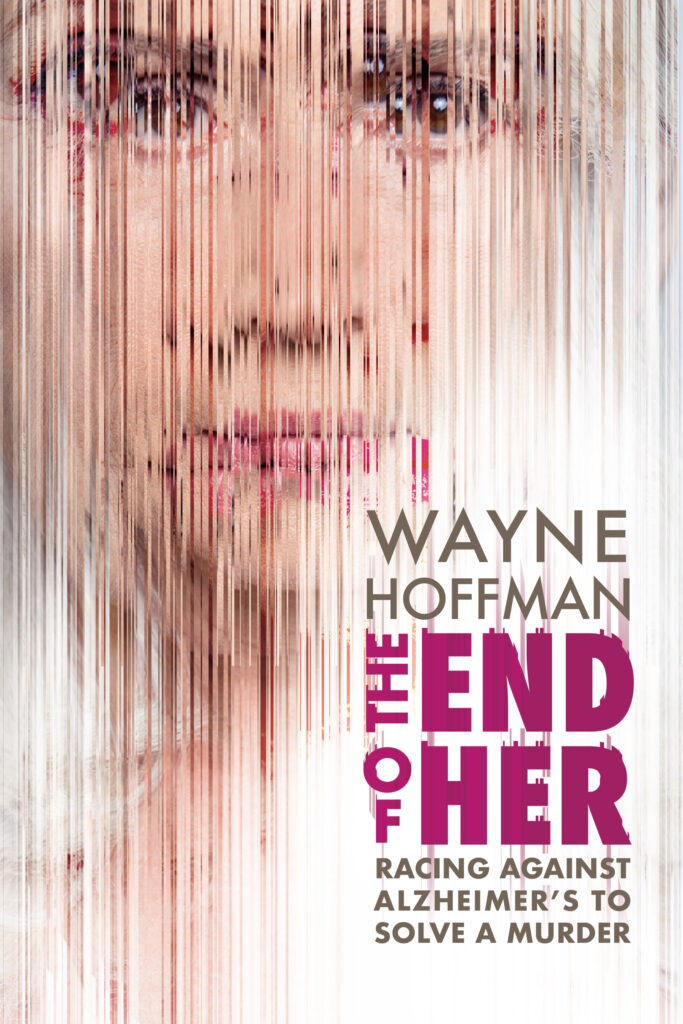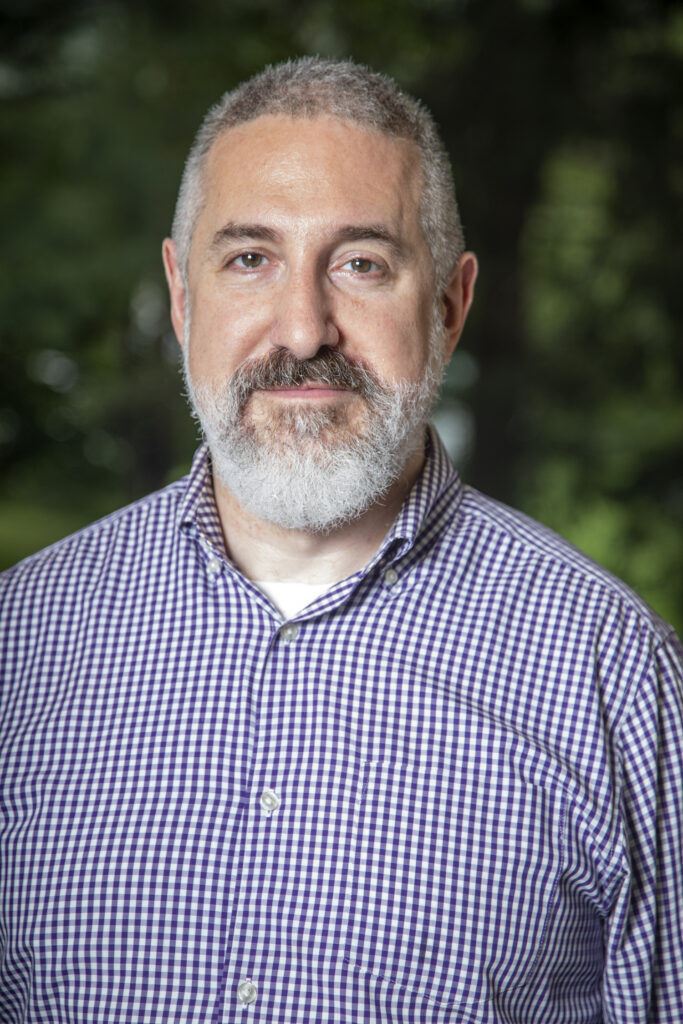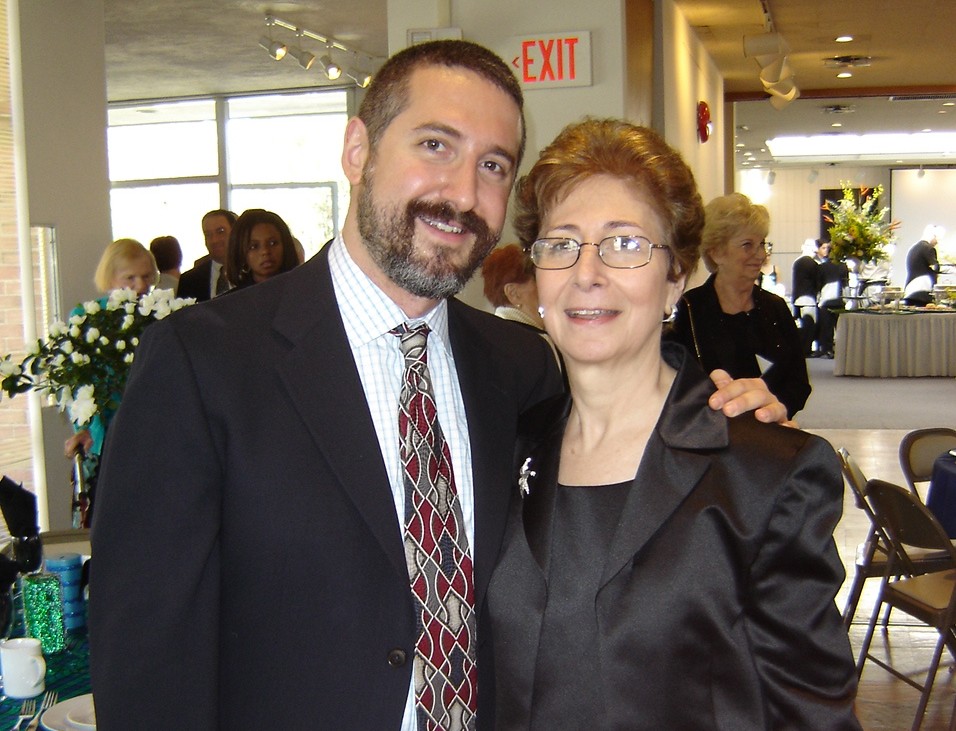Exclusive excerpt: Wayne Hoffman’s new true crime family memoir
Wayne Hoffman is best known as an award-winning novelist who’s focused on gay themes.
He has written about everything from public sex to AIDS activism, bear culture to intergenerational relationships—in his books: Hard, Sweet Like Sugar, and An Older Man. But in his new book, The End of Her, he looks at his own family instead, trying to solve the century-old murder of his great-grandmother, all while caring for his mother as she suffers from dementia. His relationship with his mother has always been close—although, as he recalls in the following excerpt, it did hit a rough patch right around the time he came out.
Excerpted from The End of Her: Racing Against Alzheimer’s To Solve a Murder by Wayne Hoffman, Heliotrope Books (February 15, 2022).

I was always my mother’s favorite.
When we were growing up in suburban Maryland, my brother and sister used to complain about this fact anytime they felt that I, the baby of the family, was getting special treatment. My mother would only feebly deny it; I was her zisa boy, as she called me in Yiddish—her sweet boy.
My mother and I never fought during what are usually a teenager’s “difficult years.” She’d spent so long stressing about my brother and sister, she’d joke, that by the time she got to me, she had “given up” and become a more mellow parent. True enough, I’d think—but then again, I’d never done anything to cause her stress.
That changed during my senior year of high school in 1987.
During my last semester, I missed my curfew for the first and last time, and she was furious. I had a good explanation: I was taking my first, tentative, awkward steps into a season of sexual experimentation with Heather, one of my best friends. But I didn’t dare tell my mother. I apologized for being late, but didn’t explain why. I suspect that—missed curfew aside—she was mad because she knew I was hiding something.
I was hiding more than she guessed.
I had started coming out to my friends the previous year, one by one, and as my senior year started to wind down, I came out to the rest of them—including Heather. But I kept being gay a secret from my parents. That spring, I withdrew every evening into my bedroom, where I could make long phone calls to my friends and talk in private about what I was going through.
As a graduation present to myself, I placed a personal ad in the City Paper, an alternative weekly in D.C., and met a guy named Larry, an undergrad from Louisiana—blond, Catholic, with a soft New Orleans accent—who was spending the summer working in Washington. I had my first date with him, and my first kiss. Larry was the first person I told, “I love you.” While I didn’t tell my parents any of the intimate details, I didn’t hide him completely. I told them I was spending time with someone named Larry, but said that he was a friend from the Jewish Community Center, where I was working at a day camp for the summer.
Of course, I couldn’t tell them when I had sex for the first time, with Larry, a couple weeks later. When I subsequently had a full-blown panic attack about AIDS—this was 1987, a scary time for a gay man to be having sex for the first time—and took Larry to a clinic to be tested for HIV, we had to wait a full two weeks for his results.
During those two weeks, I started to feel the weight of everything I’d been through in the span of a few months. I’d graduated high school, learned to drive, come out to my friends, met my first boyfriend, fallen in love, and had sex for the first time. The coming months would bring more turmoil, as I got ready to move hundreds of miles away for college, leaving my friends behind. And now, while I waited for Larry’s test results, I was forced to face the grim reality I thought awaited me as a gay man, based on what I had read about AIDS in the newspapers and seen on television: that I’d probably die long before I reached thirty.
I couldn’t explain to my parents why I was so anxious and edgy as I awaited the results of Larry’s HIV test, but I was acting strangely; my mother surmised it had something to do with my new friend. “I don’t want you seeing this Larry character anymore,” she said. “We haven’t even met him.” I protested, something I’d rarely done, and told her I’d see anyone I wanted to see. My mother started to cry.
“Stop upsetting your mother,” my father interjected. At which point, I said three words to my father I wish I could take back more than any three I’ve ever uttered: “Go fuck yourself.”
This was not the behavior my mother had come to expect from her “favorite child.”
The rest of that night involved a lot of screaming and crying and slamming doors. Still, what followed was worse: weeks of awkward silences and cold stares. My mother didn’t know what was turning her normally upbeat and compliant zisa boy into this angry adolescent, and I wasn’t ready to tell her the truth. I was too busy worrying about my own future and my health—even after Larry tested negative—to think about her. But my mother was clearly alarmed by me. Once, she was so rattled that she forgot where she parked the car at the mall and had to call a friend to pick her up. She waited outside on a bench in tears.
After I left for college that fall, our time apart helped to heal the relationship. I was five hundred miles away at Tufts outside Boston. I was also busy coming out. By the end of my first year at school, I had become an activist, speaking about gay life in classes, helping to run the campus gay group, and doing peer counseling. I also had a second boyfriend, and a third, briefly, and got more educated about AIDS and safer sex.
I came home for the summer of 1988, to work at the JCC again. On my way out the door to the annual orientation session, my mother stopped me. “If you’re trying to make an announcement, camp isn’t the place to make it,” she said.
“What are you talking about?” I asked.
She pointed at the silver ear cuff on my right ear, which I’d been wearing since I left home. “You are trying to make an announcement, aren’t you?” Apparently she knew the saying, “Left is right and right is wrong”—an earring in your right ear means you’re gay.
“I do have an announcement to make,” I told her as I walked quickly out the door, “but this isn’t how I make it.”
When I got home that evening, she had already told my father that I was gay. He stayed upstairs in their bedroom while my mother and I had “the talk” downstairs. She had figured out that I was gay when I’d come home that spring for Passover with the cuff on my right ear. “This doesn’t change anything,” she told me. “And you can believe me because I’ve already known for months, and you didn’t realize it.”
She cried. Not because I was gay per se, but because she was scared about AIDS, and anti-gay violence.
“So am I,” I said.
“And I’m sad,” she said, “because I’ll never look around the Seder table at Passover and see all my grandchildren.”
“I could still have children,” I told her. She was not ready to hear this.
She asked me not to “tell everyone” yet. I told her I was already out on campus, had been leading classes and writing about gay issues for the school newspaper, and had already appeared on a local television talk show in Boston. She was not ready to hear this, either.
Nevertheless, the summer of 1988 went more smoothly than the previous one, and by the end of it, we could talk about gay life a little bit. The week before I went back to school, the Washington Post ran a particularly homophobic op-ed piece by a conservative columnist, and I typed up a response. I left the letter on my parents’ bed before I took the train back to Boston, with a note telling them to mail it to the editor if they were ready.
I didn’t have a problem coming out in print, but my parents’ friends didn’t know about me yet, and I wasn’t sure this was how they wanted to make that kind of announcement for themselves; this would surely qualify as “telling everyone.” When I got back to my dorm, I called to tell my mother I’d arrived safely, and she told me she’d read the letter and decided not to send it. “I’m not ready yet,” she said. “But I will be.”
By the summer of 1989, she was much more comfortable having a gay son. I started dating Mark. He was blond, Catholic, and had a hint of a Southern accent. He also had a sense of humor “so dry it could blow away,” according to his (accurate) personal ad in the Washington Blade, which I’d answered. He lived on Capitol Hill, but we spent most weekends at my family’s house in the suburbs. I took that fall semester off from school to stay longer in Maryland and intern with what was then called the Human Rights Campaign Fund, America’s largest gay political organization.
It was my mother’s idea.
Get The End of Her here.

About the Author
Wayne Hoffman has written about LGBT issues for the Wall Street Journal, Washington Post, Village Voice, The Nation, Slate, Out, The Advocate, the Washington Blade, The Forward, and dozens of other publications; he is currently executive editor of Tablet magazine. His novels include Hard, An Older Man, and Sweet Like Sugar—winner of the American Library Association’s Stonewall Book Award. He also co-edited the anthology Policing Public Sex: Queer Politics and the Future of AIDS Activism, and his essays have appeared in such collections as Mama’s Boy: Gay Men Write About Their Mothers and Crashing Cathedrals: Edmund White by the Book. http://waynehoffmanwriter.com






